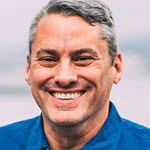The Strategy of You: Develop Your Personal Strategy
There are so many elements to consider when charting a course for your career. How do you best position your skills, experience, and strengths in an often cloudy market? How do you blend your goals with those of the organizations you work with and for? This is more than career development. It requires the application of the same strategic process toward your own life that companies apply to their markets, competitors, and offerings.
There are a finite set of elements to consider when assessing your best opportunities and how you compare to your peers. Some of the most are a thorough consideration of the various stakeholders you interact with and how to build partnerships that can boost your skills, offering, and career.
Key Takeaways:
- Learn to survey the elements you should consider in better understanding the situational context around you: competitors, stakeholders, trends, and your employers or clients.
- Learn to apply your research skills to better understand the markets and networks in which you work. Then, you’ll identify your best partners.
- How to develop “grand strategies” that meet both your strategic goals and those of your clients or employers. You. No longer have to give up one for the other.
- How to identify decision-drivers for those you work with.
- How to map your professional stakeholder ecosystems and find opportunities within it.
- How to integrate professional trends and identify which directions will best suit your professional future.
The keys to better personal strategy are to work through the superset of what needs consideration and to do so in the correct order. Simply taking this approach streamlines the process and more quickly gets you to the best opportunities. As much as we focus our skills on our users, constituents, and other stakeholders, we’re lax in using those skills for ourselves and our own professional futures. The same strategic tools that can build better strategy for companies can be used to help you identify better opportunities for yourself, focus on those that fit you best, and identify what paths and steps will help you reach those goals.

Nathan Shedroff
Professor • California College of the Arts